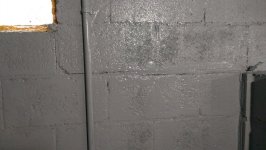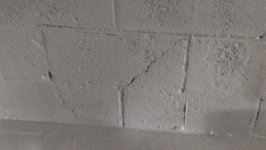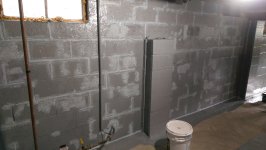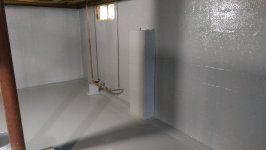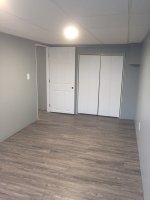problem is...this just seals water inside concrete and blocks, eroding away the rebar. this is just surface repairs. you need to remove all backfill from walls, clean and waterproof the actual walls.
i used to do this for a living years ago. i would prep cleaned wall with layer of ThoroSeal grey , then a second layer of ThoroSeal white sealer. then install a layer of Bituthane 1/4" self adhering membrane over a coat of extra adhesive. Then install a 2" Styrofoam protector board to prevent rock damage, add a french drain and install french drain rock.
i did this for many years, and have never had water infiltration.
i did it on my own house 26 years ago for basement. not a whiff of mildew many years later.
i tried to have my buddy that is building a new house do so on his foundation, but hes a lazy sack. he just brushed on some kind of thick waterproof paint, then backfilled without french drains. house is 1 year old....leaks like a sieve. cant fix stupid.
